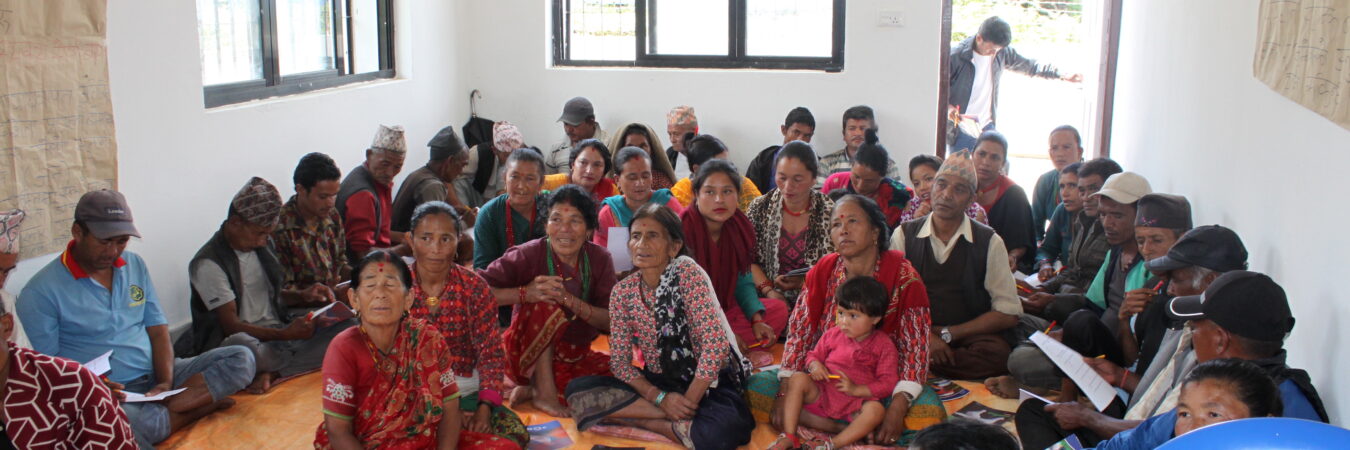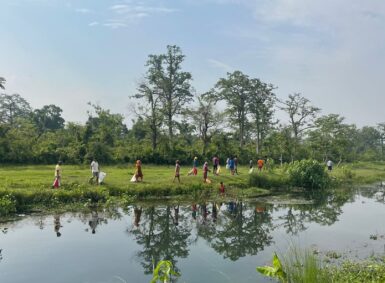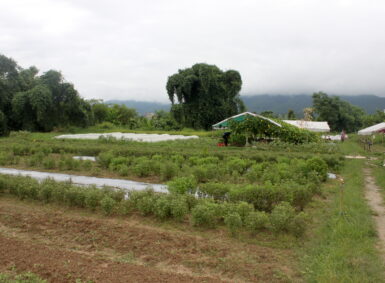
Strengthening forest dependent communities in Nepal through capacity building around sustainable forest management and forest certification
- Starting Date:
- May 1, 2019
- Ending Date:
- December 31, 2019
- Location:
- Dolakha & Nawalpur districts
- Donor(s):
- Civil Society in Development (CISU)
- Implementation Partner(s):
- NEPCon
This project has the objective to build capacity of forest dependent communities in Nepal regarding social, economic and environmental concepts using forest certification as a concrete tool.
The project activities were carried out in 25 community forests, involving community workshops in 17 forest management units in Gaurishankar Conservation Area of Dolakha district and ecosystem services training in 8 forest management units in Nawalpur district of Nepal. With these workshops and trainings, the forest dependent communities were capacitated on the various elements of forest certification and how it could have multiple socioeconomic and environmental benefits. Change in knowledge and understanding of the participants on these subject matters was measured through pre-training and post-training questionnaires survey in each of these events. Similarly, with these events, major forest-based ecosystem services are identified in the project area along with the knowledge, interests and capacity building needs of the forest user groups on forest certification, which have provided important baseline and foundation for designing the larger program to increase financial and social empowerment of poor forest dependent communities in Nepal.
Two network meetings: a district level in Dolakha and a national level in Kathmandu were organized. The district level network meeting in Dolakha that involved the key district level stakeholders and local government representatives identified the potential activities on forest-based ecosystem services in Dolakha along with the stakeholders with potential roles for collaboration in each activity. Similarly, the national level network meeting in Kathmandu involving key national level stakeholders discussed on the potential of developing a national level framework program on ecosystem services with key generic interventions for conservation and sustainable management of ecosystem services to generate socio-economic benefit to the local communities.


